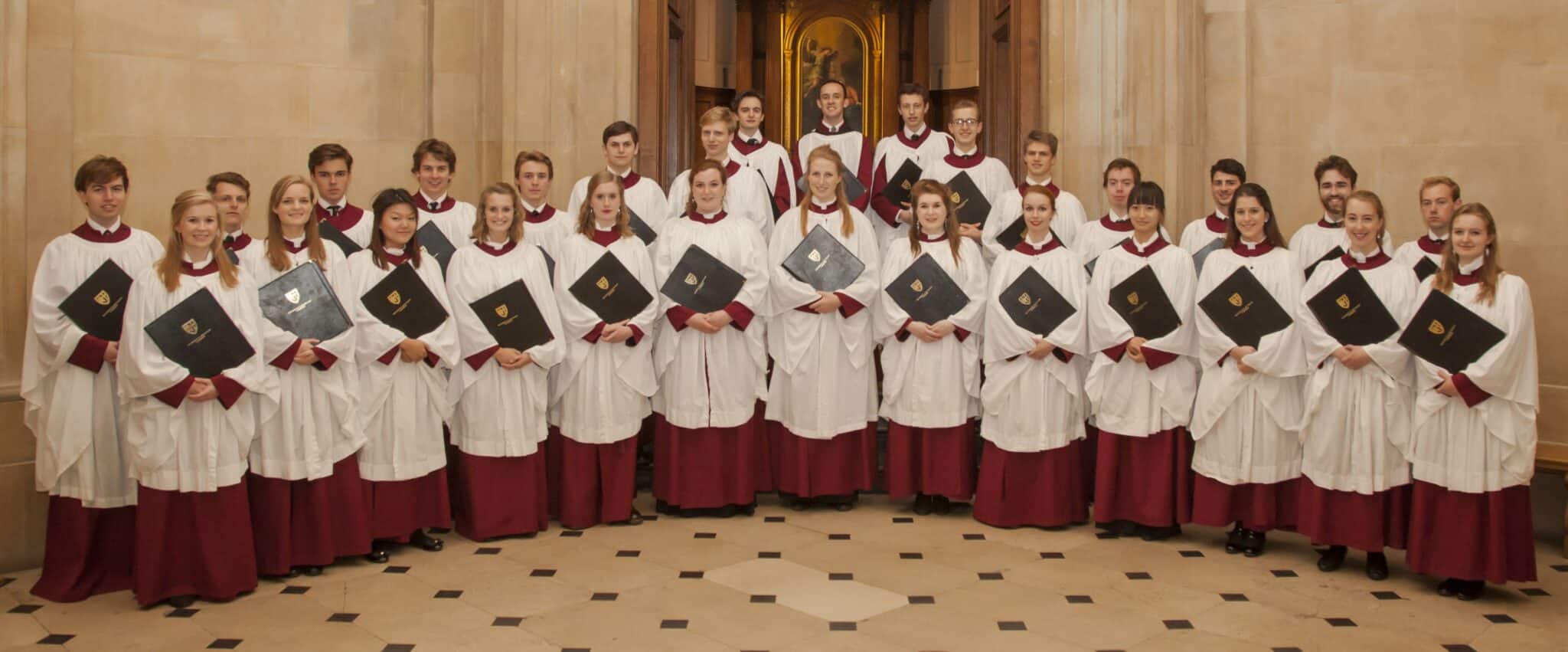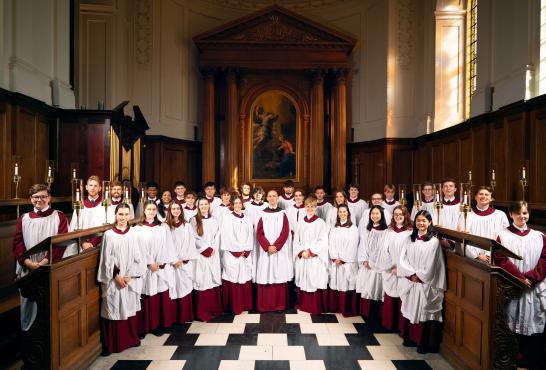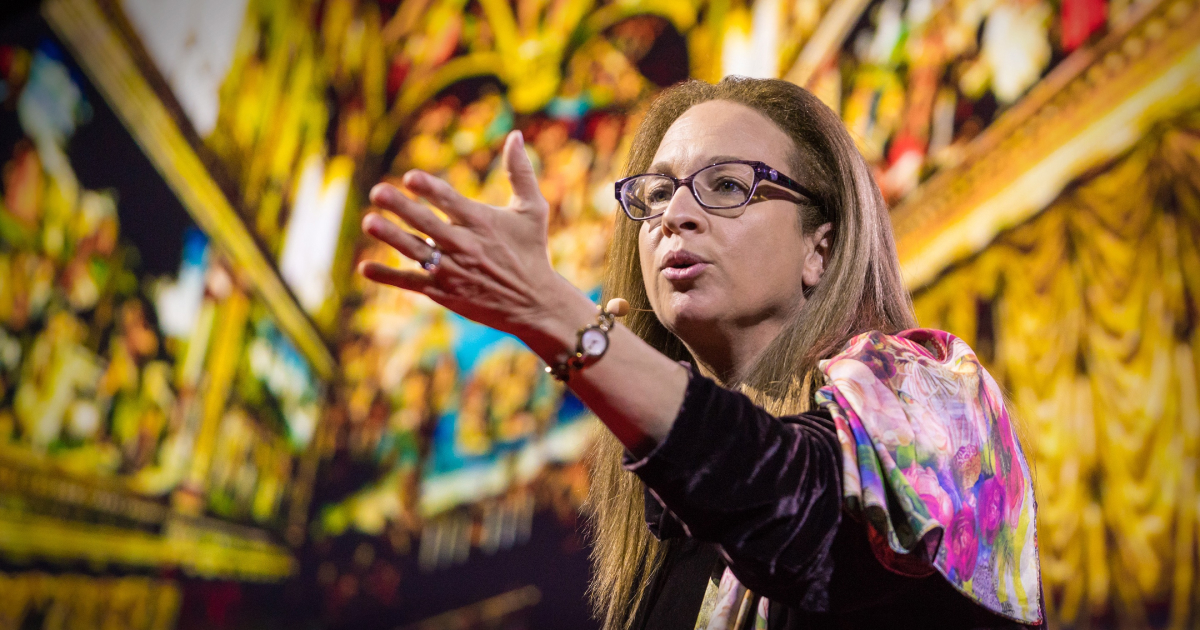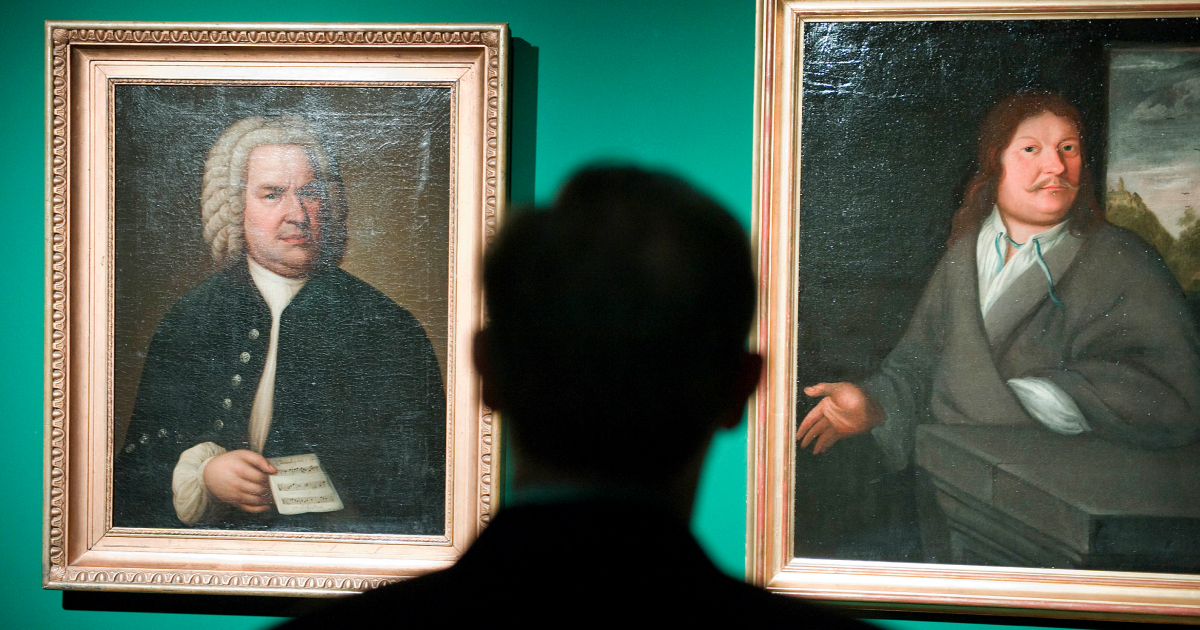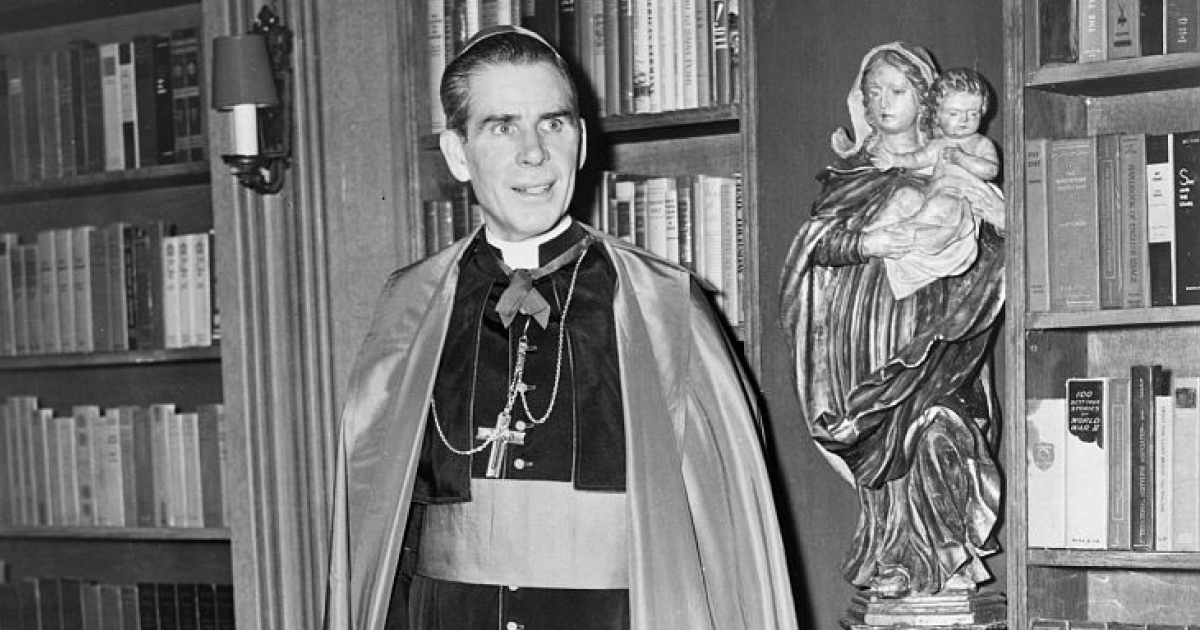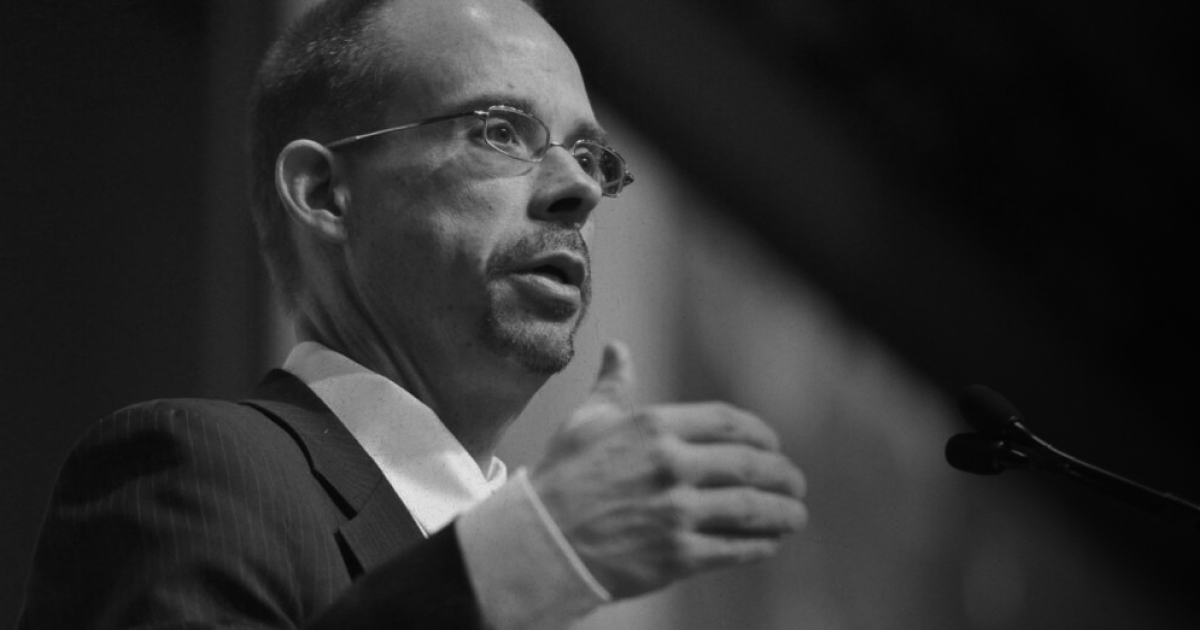The potency of human voices singing with collective purpose is a thing most people can experience year-round. But the approach of Christmas gives it a peculiar intensity – and for me it begins on Advent Sunday, which I always spend in Cambridge, at the chapel of Clare College where they manage Advent well.
The debt owed by the British choral world to Oxbridge chapel choirs is huge. They’re like an incubator for ensemble singers who pass on into cathedral choirs or join the freelance circuit that feeds major churches. The outstanding talents make for one of the elite groups that set standards for the rest of us: the Sixteen, Tallis Scholars, Tenebrae, Polyphony… through to the solo-status brilliance of the Gesualdo 6 or Voces 8.
It’s a constant source of worry that the Oxbridge colleges, whose senior common rooms are now rarely bastions of faith, don’t always value what their chapels do – with an attendant risk to funding.
Happily, Clare Choir seems secure, and so it should be. It may not be quite so internationally renowned as King’s or St John’s but it shares with Trinity the status of the leading mixed-voice chapel choir in Cambridge. And its reputation has been forged by a conveyor-belt of eminent directors, from John Rutter to Timothy Brown and, most recently, Graham Ross – whose dynamically upbeat schedule of recordings, broadcasts and tours carry the name of Clare way beyond academia.
In short, it’s a remarkable institution – and the more so because it triumphs over an acoustic that isn’t helpful to good sound. Clare Chapel has none of the cushioned resonance of King’s, which does half the work of singing for you and camouflages mistakes. In Clare there’s no hiding, no easy floating of top lines. So the only solution is to be purposeful, exact and energised – which is what the choir aims for and delivers.
I wouldn’t presume to review its Advent Carol Service but can happily report that it was powerful: an assertive curtain-raiser to the Christmas season and something I’d dearly miss if I wasn’t there – not least because of my own memories of singing the Advent repertoire (long ago) in another Oxbridge chapel. We weren’t half so good as Clare, but never mind: the magic of Palestrina’s Matin Responsory projected into darkness, the processions, candlelight and haunting sequences of minor English masters – Peter Warlock, Herbert Howells, Kenneth Leighton – left a mark like nothing else in my three years of undergraduate existence. And it doesn’t fade with time.
Something that does, regrettably, appear to fade is the idea of basic values on the concert platform. There is pressure these days for performances to come with bells and whistles – light shows, razzmatazz, "enhanced experience" – to pull in audiences. But there’s one event that resolutely stands against all that, and flourishes. Bath’s annual Mozartfest delivers music in a seriously straightlaced way: no frills, no phoney frolicking, no compromise. It treats its audience like grown-ups. And it works, impressively.
The other month I joined a heaving audience at the city’s Guildhall for a lunchtime concert by the Amatis Trio, over from Salzburg with a core-classical Beethoven/Mendelssohn programme that needed no ‘enhancement’ to make its point. The night before, I heard mezzo Sarah Connelly and pianist Joseph Middleton perform Schumann’s Frauenliebe und Leben: a song-cycle of domestic devotion whose sentiments – about the purpose of a woman’s life being to love her husband, have his child, and be destroyed by losing him – don’t quite match modern thought. But Connelly avoided grovel, managed not to oversell the self-denial in the songs, and still delivered something tender, heartfelt, and affecting.
For an added masterclass in how to stop an audience’s heart, she offered as an encore Herbert Howells’ King David: an exquisite song to words by Walter de la Mare which imagines the Israelite monarch as a man of sorrow consoled by the sound of a nightingale. It may not be entirely scriptural but it’s profoundly moving. And when sung by a great artist, you can only hold your breath and wonder at the beauty.
There was breath-holding required, too, in a recital given by the American baritone Will Livermore as part of this year’s Oxford Song Festival – for reasons good and bad in that it began shakily but ended in resounding triumph: better that way round than the reverse.
The shakiness came with an upfront batch of Schubert in which Livermore’s fierce, dark-hued voice made everything sound angry, filling out the text with rant rather than tone. It made you wonder why he has the reputation of a rising superstar – as, in America, he does. But later on, he shifted ground to US repertoire. And it was like the sun emerging from a cloud, suddenly golden and magnificent: especially in some concluding songs that he’d composed himself and turned out to be stunning.
Had there been an intermission in this concert I might just have crept off. Thankfully there wasn’t, so I didn’t get the chance to miss an unexpected revelation.
<strong>The potency of human voices</strong> singing with collective purpose is a thing most people can experience year-round. But the approach of Christmas gives it a peculiar intensity – and for me it begins on Advent Sunday, which I always spend in Cambridge, at the chapel of Clare College where they manage Advent well.
The debt owed by the British choral world to Oxbridge chapel choirs is huge. They’re like an incubator for ensemble singers who pass on into cathedral choirs or join the freelance circuit that feeds major churches. The outstanding talents make for one of the elite groups that set standards for the rest of us: the Sixteen, Tallis Scholars, Tenebrae, Polyphony… through to the solo-status brilliance of the Gesualdo 6 or Voces 8.
It’s a constant source of worry that the Oxbridge colleges, whose senior common rooms are now rarely bastions of faith, don’t always value what their chapels do – with an attendant risk to funding.
Happily, Clare Choir seems secure, and so it should be. It may not be quite so internationally renowned as King’s or St John’s but it shares with Trinity the status of the leading mixed-voice chapel choir in Cambridge. And its reputation has been forged by a conveyor-belt of eminent directors, from John Rutter to Timothy Brown and, most recently, Graham Ross – whose dynamically upbeat schedule of recordings, broadcasts and tours carry the name of Clare way beyond academia.
In short, it’s a remarkable institution – and the more so because it triumphs over an acoustic that isn’t helpful to good sound. Clare Chapel has none of the cushioned resonance of King’s, which does half the work of singing for you and camouflages mistakes. In Clare there’s no hiding, no easy floating of top lines. So the only solution is to be purposeful, exact and energised – which is what the choir aims for and delivers.
I wouldn’t presume to review its Advent Carol Service but can happily report that it was powerful: an assertive curtain-raiser to the Christmas season and something I’d dearly miss if I wasn’t there – not least because of my own memories of singing the Advent repertoire (long ago) in another Oxbridge chapel. We weren’t half so good as Clare, but never mind: the magic of Palestrina’s Matin Responsory projected into darkness, the processions, candlelight and haunting sequences of minor English masters – Peter Warlock, Herbert Howells, Kenneth Leighton – left a mark like nothing else in my three years of undergraduate existence. And it doesn’t fade with time.
<strong>Something that does</strong>, regrettably, appear to fade is the idea of basic values on the concert platform. There is pressure these days for performances to come with bells and whistles – light shows, razzmatazz, "enhanced experience" – to pull in audiences. But there’s one event that resolutely stands against all that, and flourishes. Bath’s annual <em>Mozartfest</em> delivers music in a seriously straightlaced way: no frills, no phoney frolicking, no compromise. It treats its audience like grown-ups. And it works, impressively.
The other month I joined a heaving audience at the city’s Guildhall for a lunchtime concert by the Amatis Trio, over from Salzburg with a core-classical Beethoven/Mendelssohn programme that needed no ‘enhancement’ to make its point. The night before, I heard mezzo Sarah Connelly and pianist Joseph Middleton perform Schumann’s <em>Frauenliebe und Leben</em>: a song-cycle of domestic devotion whose sentiments – about the purpose of a woman’s life being to love her husband, have his child, and be destroyed by losing him – don’t quite match modern thought. But Connelly avoided grovel, managed not to oversell the self-denial in the songs, and still delivered something tender, heartfelt, and affecting.
For an added masterclass in how to stop an audience’s heart, she offered as an encore Herbert Howells’ <em>King David</em>: an exquisite song to words by Walter de la Mare which imagines the Israelite monarch as a man of sorrow consoled by the sound of a nightingale. It may not be entirely scriptural but it’s profoundly moving. And when sung by a great artist, you can only hold your breath and wonder at the beauty.
<strong>There was breath-holding</strong> required, too, in a recital given by the American baritone Will Livermore as part of this year’s Oxford Song Festival – for reasons good and bad in that it began shakily but ended in resounding triumph: better that way round than the reverse.
The shakiness came with an upfront batch of Schubert in which Livermore’s fierce, dark-hued voice made everything sound angry, filling out the text with rant rather than tone. It made you wonder why he has the reputation of a rising superstar – as, in America, he does. But later on, he shifted ground to US repertoire. And it was like the sun emerging from a cloud, suddenly golden and magnificent: especially in some concluding songs that he’d composed himself and turned out to be stunning.
Had there been an intermission in this concert I might just have crept off. Thankfully there wasn’t, so I didn’t get the chance to miss an unexpected revelation.





